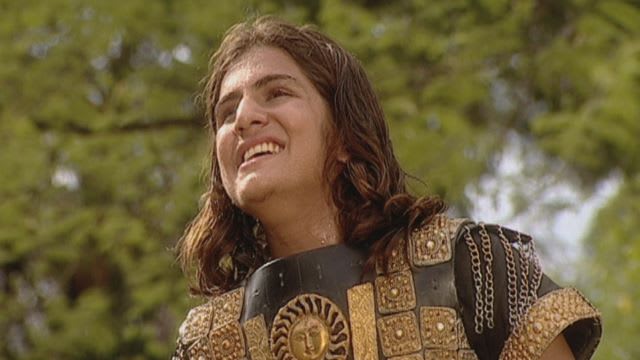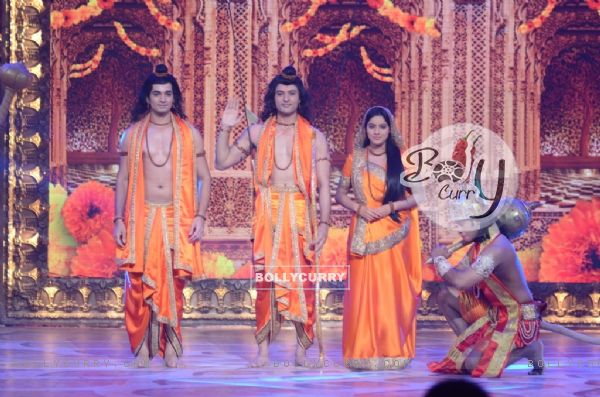
This division served the British politics of divide and rule well, and unfortunately continues to dictate the modern Indian view of its past. In fact, it would be crude to say that this one change of regime had a uniform effect over the entire subcontinent. This is despite the fact that the victory of Mahmud of Ghori over Prithviraj Chauhan in 1192 CE only led to the establishment of the Delhi Sultanate and Hindu rulers continued to rule several parts of India well after 1192 CE. Tod’s use of the term “last” alludes to the 19th-century Western conception of Indian history into three distinct periods – Hindu, Muslim and British. Tod labels Prithviraj as “the last Hindu emperor” in his Annals and Antiquities of Rajasthan a label that is used time and again to rouse communal sentiments. Tod was a colonial historian who produced the first western work of scholarship featuring Prithviraj in 1829-32. Its primacy as a source of “history” over other works composed during the lifetime of Prithviraj or immediately after his death ( Prthvīrāja Vijaya in 1191 CE and Tāj al-Ma’āsir in 1217 CE among others) is due to the favourable treatment it received first by the ruling elites of Rajasthan and then by James Tod. According to historian Cynthia Talbot in her book The Last Hindu Emperor, the written version of the epic appears some 400 years after Prithviraj’s death in 1192 CE. Much of what is popularly known (or at least claimed) about Prithviraj comes from Prithviraj Raso, an epic poem composed by his friend and court poet, Chand Bardai, who himself appears in the story. While the historicity of Prithviraj is not in doubt, the limited information we have about him from contemporary sources paints a hazy and often contradictory picture.
Star Plus Serial Prithviraj Chauhan All Episodes movie#
The actor in question has also made an appeal to show his movie in schools as part of history lessons, as if a cinematic rendering of a historical figure made for commercial profit is the best way to educate.Īlso read: Santhal Hul Wasn’t Just the First Anti-British Revolt, It Was Against All Exploitation With a new Hindi movie releasing on Prithviraj Chauhan led by a self-proclaimed nationalist actor, the memory of the 12th –century ruler is once again up for grabs. His thesis comes in handy in understanding the current wave of re-interpretation and re-writing of Indian history, which is not so much a scholarly exercise as an attempt to re-cast the past to suit the needs of the present. Thus, what Nora emphasises is not so much the reconstruction of the past but understanding how the past is remembered today and how these sites relate to the present. Pierre Nora puts forward the idea of “sites of memory” which refer to “any significant entity, whether material or non-material in nature, which by dint of human will or the work of time has become a symbolic element for the material heritage of a community”. Both Bhatt (whose manuscripts were present in front of me) and Bardai’s canonical poems shared the same feature of bardic literature: produced for an elite (upper caste) patron, transmitted as a part oral and part written text, and composed as a poem filled with vir rasa (heroic sentiment). Bhatt, in his own words, belongs to the tradition of royal bards such as Chand Bardai, who is credited popularly for composing Prithviraj Raso (or Rāso). While his words cannot be constructed as a reliable historical source on Prithviraj Chauhan and his explanation for some communities using the “Chauhan” last name can be contested, what they indicated was the imagination of the idea of the legendary Rajput ruler. According to him, Rajputs in the Delhi belt started using the last name “after” Prithviraj Chauhan became famous for his bravery.

He, however, started the conversation with reprimanding me for using my surname “Chauhan “and not my correct gotra name “Bhal”.

As the traditional genealogy and record keeper, he was in possession of some rare family trees from my village.


In a search of the history of my own family and village, an urban village in Delhi – Khirki village – I had ended up at the doorstep of Nathuram Bhatt in 2018 in his village near Sonipat, Haryana.


 0 kommentar(er)
0 kommentar(er)
